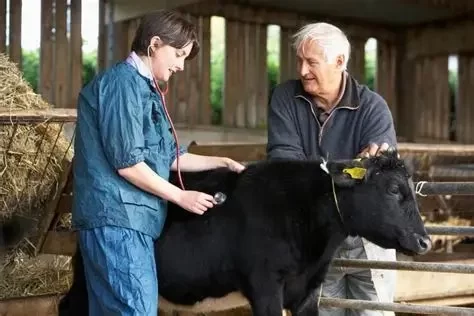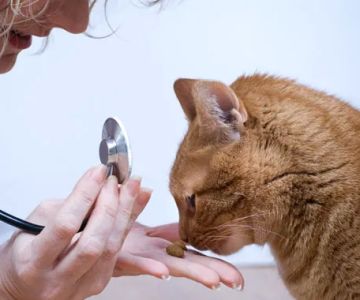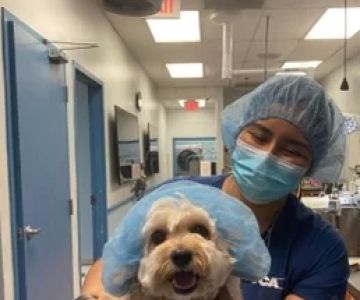Is Travel Involved for a Veterinarian? What to Expect and Career Insights
- different-types-of-veterinarians-and-their-mobility - Different Types of Veterinarians and Their Mobility
- roles-where-travel-is-essential - Roles Where Travel Is Essential for Veterinarians
- real-life-vet-travel-experiences - Real-Life Travel Experiences of Veterinarians
- how-travel-affects-vet-lifestyle-and-schedule - How Travel Affects a Veterinarian’s Lifestyle and Work Schedule
- benefits-and-challenges-of-a-traveling-vet-career - The Benefits and Challenges of a Traveling Veterinary Career
- finding-your-fit-in-the-vet-world - Finding Your Fit in the Veterinary World
1. Different Types of Veterinarians and Their Mobility
When asking “is travel involved for a veterinarian”, the answer varies widely depending on the type of veterinary career path you pursue. A small animal vet working in a suburban clinic may hardly ever leave their practice, while others may find themselves traveling across states—or even continents—for their work.
Veterinary medicine isn’t a one-size-fits-all profession. Your level of travel depends on your role, your specialization, and the lifestyle you envision for yourself. From rural livestock vets to international wildlife conservationists, travel can be a defining part of the job—or a minor component.
2. Roles Where Travel Is Essential for Veterinarians
2.1 Mobile and Ambulatory Vets
Mobile veterinarians, especially those serving equine clients or large animals in rural areas, travel daily. These vets drive between farms, ranches, or even homes—bringing diagnostic tools and treatment plans directly to their patients. For many, it’s a rewarding way to build close community ties and work independently.
2.2 Veterinary Relief Work
“Relief vets” fill in at clinics temporarily, often traveling to different cities or states. These roles offer flexibility and variety—plus the chance to explore new locations while still practicing medicine.
2.3 Wildlife and Conservation Vets
In this adventurous corner of vet work, travel is not just common—it’s mandatory. Whether tracking elephants in Kenya, rehabilitating sea turtles in Florida, or supporting disaster response efforts, conservation vets have passports full of stamps and stories full of meaning.
2.4 Government and Military Vets
Veterinarians working for the USDA, CDC, or armed forces may be deployed or assigned across different regions and even abroad. Their work ensures biosecurity, animal welfare, and public safety on a broad scale—often requiring them to be on the move.
3. Real-Life Travel Experiences of Veterinarians
Dr. Lisa Tran, a relief vet from California, describes her experience: “I’ve worked in five different states over the last three years. I love the challenge of adapting to different clinic environments and exploring new places on my days off.”
Meanwhile, Dr. Rajesh Kumar, a wildlife vet based in India, shares: “Last year alone, I traveled to seven countries working on various animal health missions. Yes, it’s exhausting at times, but the impact makes it all worthwhile.”
These firsthand stories show how travel can become a major perk—or a personal challenge—depending on your goals and stamina.
4. How Travel Affects a Veterinarian’s Lifestyle and Work Schedule
4.1 Time Management and Flexibility
Veterinarians with travel-heavy roles often face irregular hours and time away from home. While some find the freedom exhilarating, others may miss stability. Efficient scheduling, strong communication, and good planning tools are essential to maintaining balance.
4.2 Family and Social Impact
For vets with families, frequent travel can be a logistical challenge. However, some find creative solutions, such as combining remote work or telehealth roles to stay closer to home while still engaging in travel periodically.
4.3 Health and Personal Well-being
Traveling extensively, especially across time zones or climates, can take a toll on physical and mental health. Many traveling veterinarians prioritize wellness practices and choose assignments that allow for rest and recovery between trips.
5. The Benefits and Challenges of a Traveling Veterinary Career
5.1 Benefits
- Adventure and Variety: No two weeks are the same when you’re on the move.
- Career Growth: Traveling vets often gain broader experience, which can lead to higher pay or specialized roles.
- Wider Impact: Your skills can serve remote areas, wildlife populations, or disaster zones that need urgent veterinary care.
5.2 Challenges
- Burnout Risk: Constant movement and new environments can be mentally taxing.
- Less Stability: Housing, relationships, and continuity of care may be affected.
- Higher Costs: Traveling frequently may require personal investments not always reimbursed.
6. Finding Your Fit in the Veterinary World
If you’re wondering “is travel involved for a veterinarian”, the answer depends entirely on the role you pursue. The beauty of veterinary medicine lies in its diversity. Whether you dream of a quiet clinic or a career that spans continents, there’s a path for you.
Explore programs and internships that offer mobile or international rotations. Talk to veterinarians in roles that interest you. Test your comfort level with short-term travel before committing to long-term itinerant work.
And if you're ready to embrace a world of movement, impact, and learning—look into mobile veterinary units, wildlife programs, or tele-vet platforms that support travel-based practice. Your journey starts with the right tools, and we’re here to help.
Ready to gear up for a life on the move? Discover flexible training programs, travel kits, and mobile vet tools tailored for veterinary professionals who don’t stay still for long. The world needs your skills—and it just might take you places you’ve only dreamed of.












